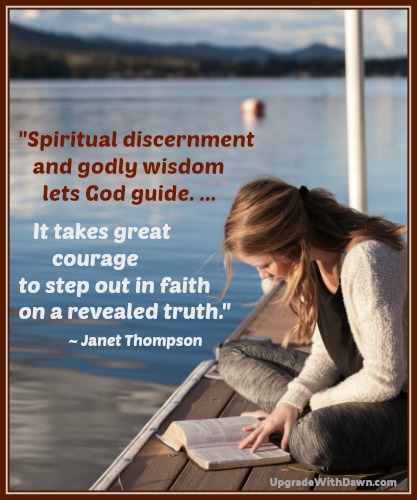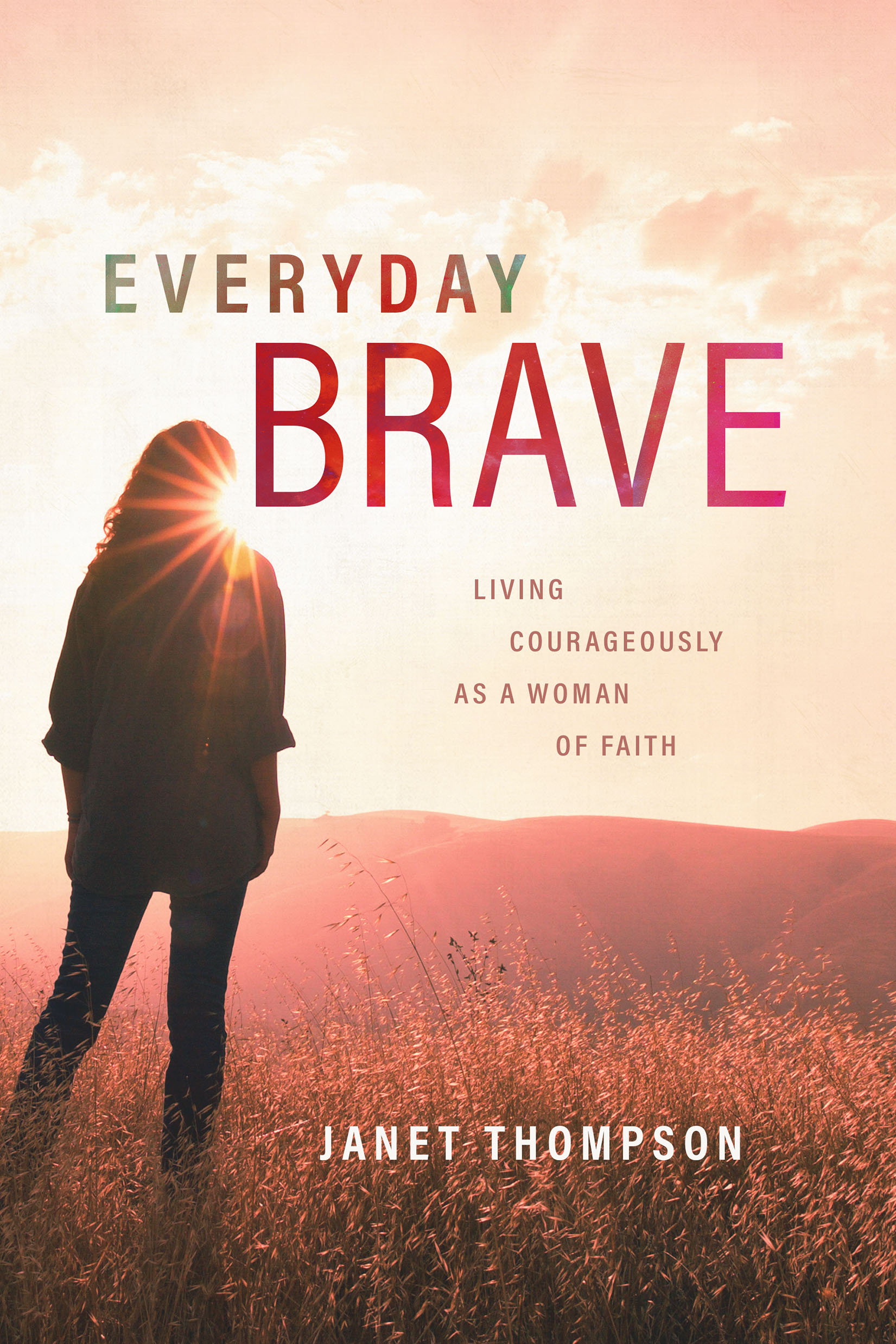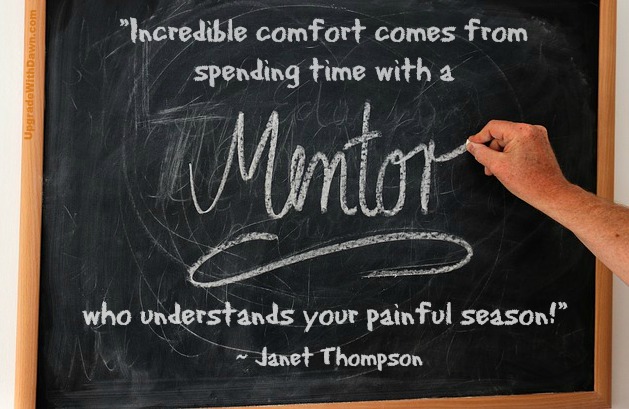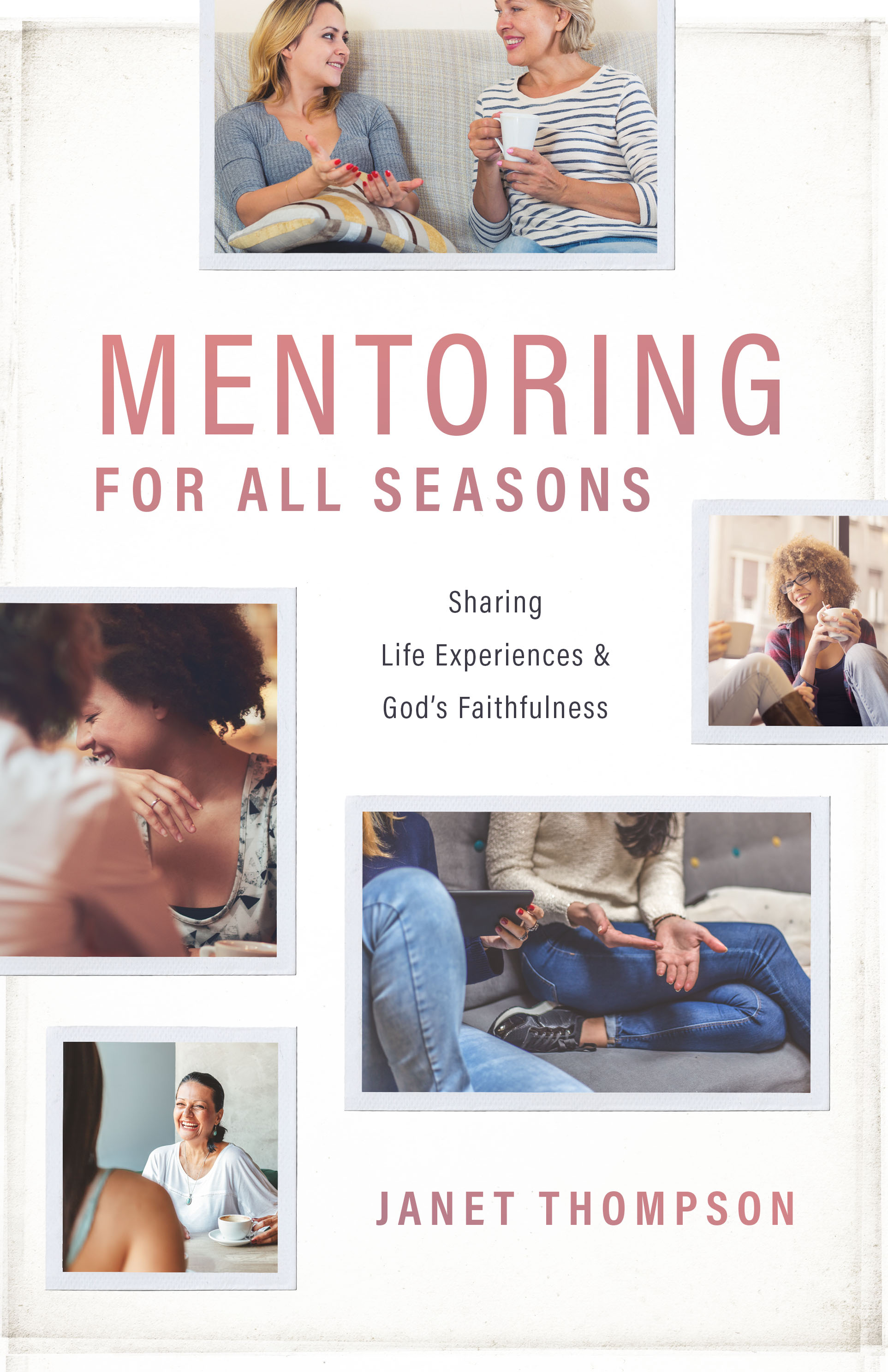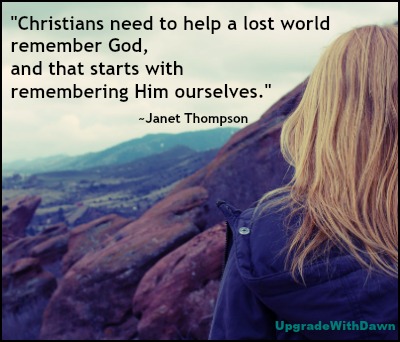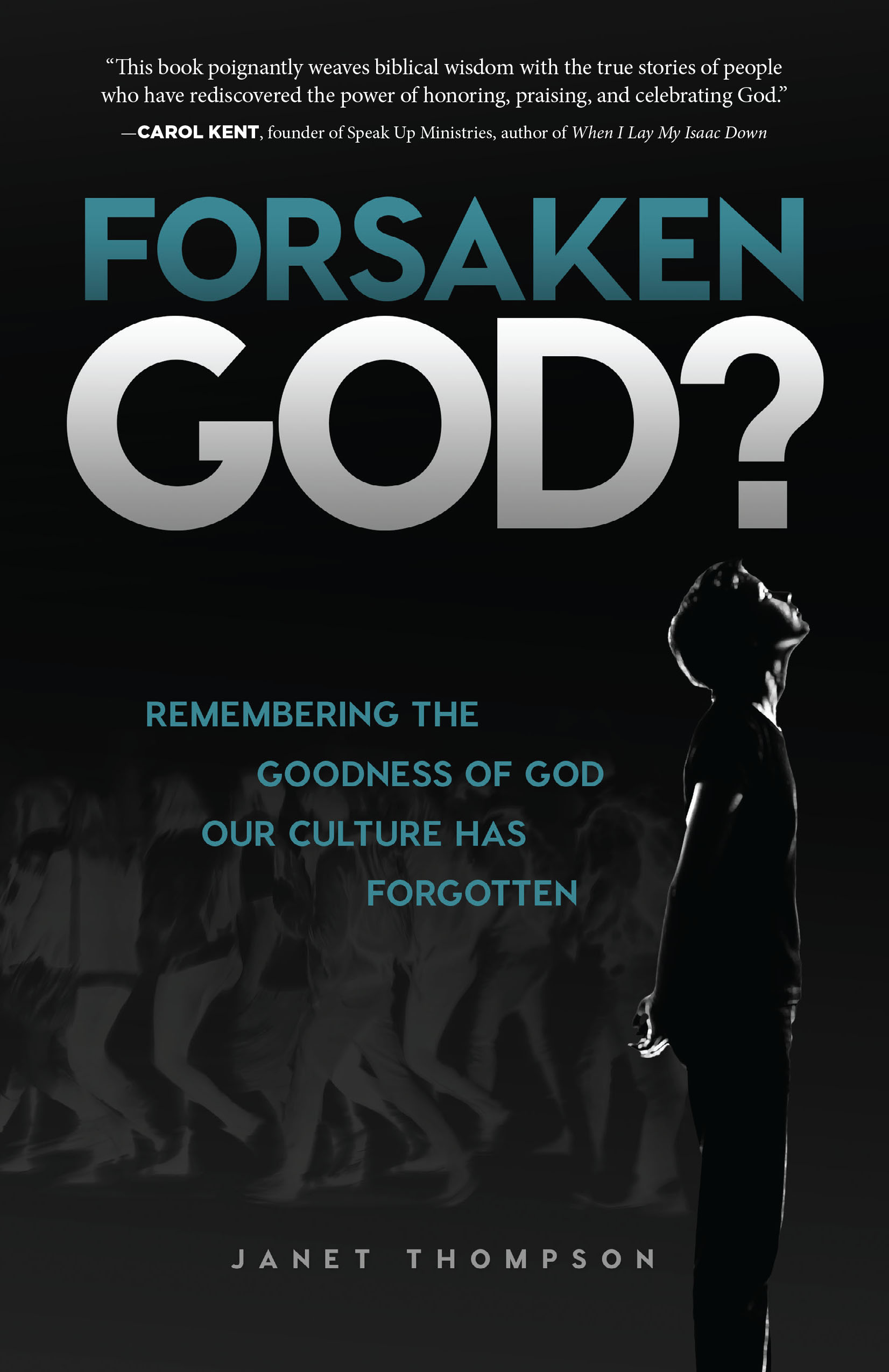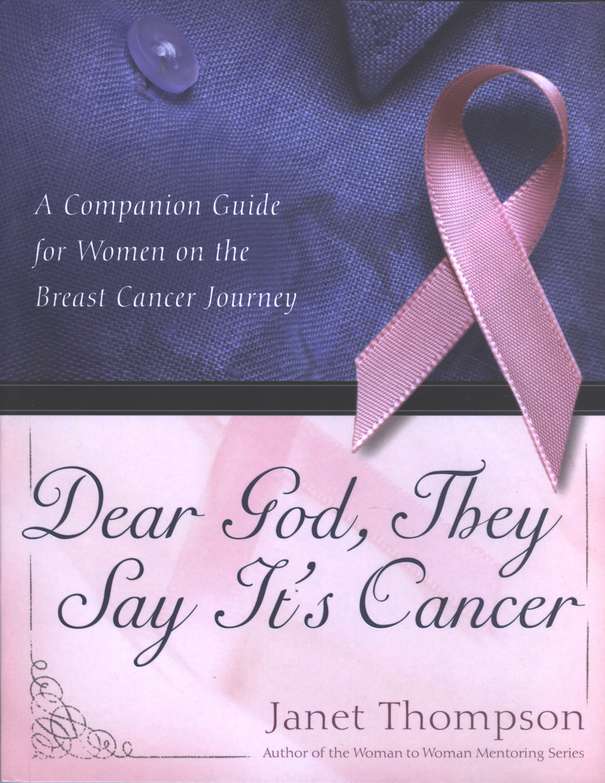God Chose You, Sins and All!
Janet Thompson is an accomplished author of many books on many topics that point us to the goodness and faithfulness of God. In this Easter-is-coming UPLIFT post, Janet reminds us of the reason for the cross, and the joy of being chosen by the Lord for redemption from our past.
"Imagine an opportunity," Janet says, "to write your past sins on a slip of paper and nail it to a wooden cross. A symbolic visual that the purpose of the brutal crucifixion and glorious resurrection was to afford you and m, the opportunity for repentance and forgiveness!
"Yet still, we can’t imagine that anyone, even Jesus, could forgive our past."
I (Dawn) once attended a women's conference where the women did exactly that. On a file card, we each wrote some sins the Lord was speaking to us about, and then we nailed them to a tall, rough, wooden cross.
I was a spiritual mess at that point, and I remember thinking, "How many cards can I have?"
Janet continues . . .
Mary Magdalene was a woman with a tortured past. People, especially in her own town of Magdala, knew this Mary as the woman possessed by seven demonic spirits.
We don’t know what kind of life she led before we meet her in Scripture or how she became demon possessed.
Was she part of the occult or witchcraft?
Was she addicted to mind-altering drugs like opium or alcohol?
Somehow, some way, evil spirits overtook her mind, body, and soul. Evil oppressed and possessed her.
And then . . . Jesus came to town.
He saw her wretched life and took pity and compassion on her as He called her to Him, surprising everyone trying their best to avoid her. But He wanted to do something miraculous for them to see.
At the sound of His voice, all seven demons that had made their home in her body vanished. What a transformation! How could anyone deny He was who He said he was with such a dramatic example of His healing and restoring powers!
Set free from spiritual bondage and oppression, her eyes sparkled and a joyous smile lit up her face as she felt the surge of good replace evil in her spirit.
How could she ever repay this teacher and healer who cared enough about her to give her a renewed life?
She would devote herself to serving and following Jesus wherever He went, sharing her story with others living a miserable life, as hers was before Jesus. They too could overcome their past and become a new person with the help of Jesus Christ.
As she stood in the crowds that surrounded Jesus while He was teaching, she frequently told her story to whoever would listen. There’s no more compelling testimony than that of someone attesting to the bondage of living a sinful, burdened, afflicted, hellish life before meeting Jesus and then joyfully celebrating the peaceful person they’ve become.
“Look at me now!”
Mary Magdalene never wavered in her trust and belief in Jesus during his ministry, and so it was that she woefully suffered and grieved, watching her cherished teacher and healer tortured and crucified.
How could this happen to the man who gave her life back to her, who healed and helped so many?
Sunday morning after the crucifixion, Mary Magdalene knew she must go with the other women followers to the tomb where they buried Jesus to see him one more time and anoint His body with perfumes and oils after He was so brutally tortured and murdered.
But wait? He isn’t there? The stone is rolled back and the tomb is empty? Where did they take Him?
The other women ran back to tell the disciples.
Mary Magdalene, all alone and sinking to her knees outside the tomb, crying bitter tears, hears a man—probably a gardener—ask her, “Why are you crying? Who are you looking for?”
Thinking the gardener had taken him somewhere, she asks where he took Jesus so she can go get Him.
Then the “gardener” said to her, “Mary.” He called her only by her first name.
This once outcast-of-society, demon-possessed woman, who overcame her past afflictions and never wavered in her commitment to Jesus Christ, was the first person to see and hear Jesus’s resurrected body.
Then she realizes, “I have seen the Lord!”
He chose her.
Like Mary Magdalene, do you remember how it was when you first asked Jesus into your heart?
- When Jesus freed you from your past sins and spiritual bondage?
- How happy and grateful you were?
Your life radically changed. The old life exchanged for a new life in Christ.
If you suffered from effects of addictions or trappings of the past, people now saw joy on your face and a kick in your step. Your countenance was radiant and confident. You were a new creation and excited to tell everyone what knowing Jesus Christ did for you.
You’re still that new creation, so never lose your joy in Christ or tire of telling others about him.
For he has rescued us from the dominion of darkness and brought us into the kingdom of the Son he loves, in whom we have redemption, the forgiveness of sins (Colossians 1:13-14).
He chose you!
How does knowing God chose you and redeemed you encourage you today? Does His great love and mercy inspire you to tell others about Him?
Janet Thompson is a speaker and author of 20 books. Janet’s new release is Everyday Brave: Living  Courageously As a Woman of Faith. She’s also the author of Mentoring for All
Courageously As a Woman of Faith. She’s also the author of Mentoring for All 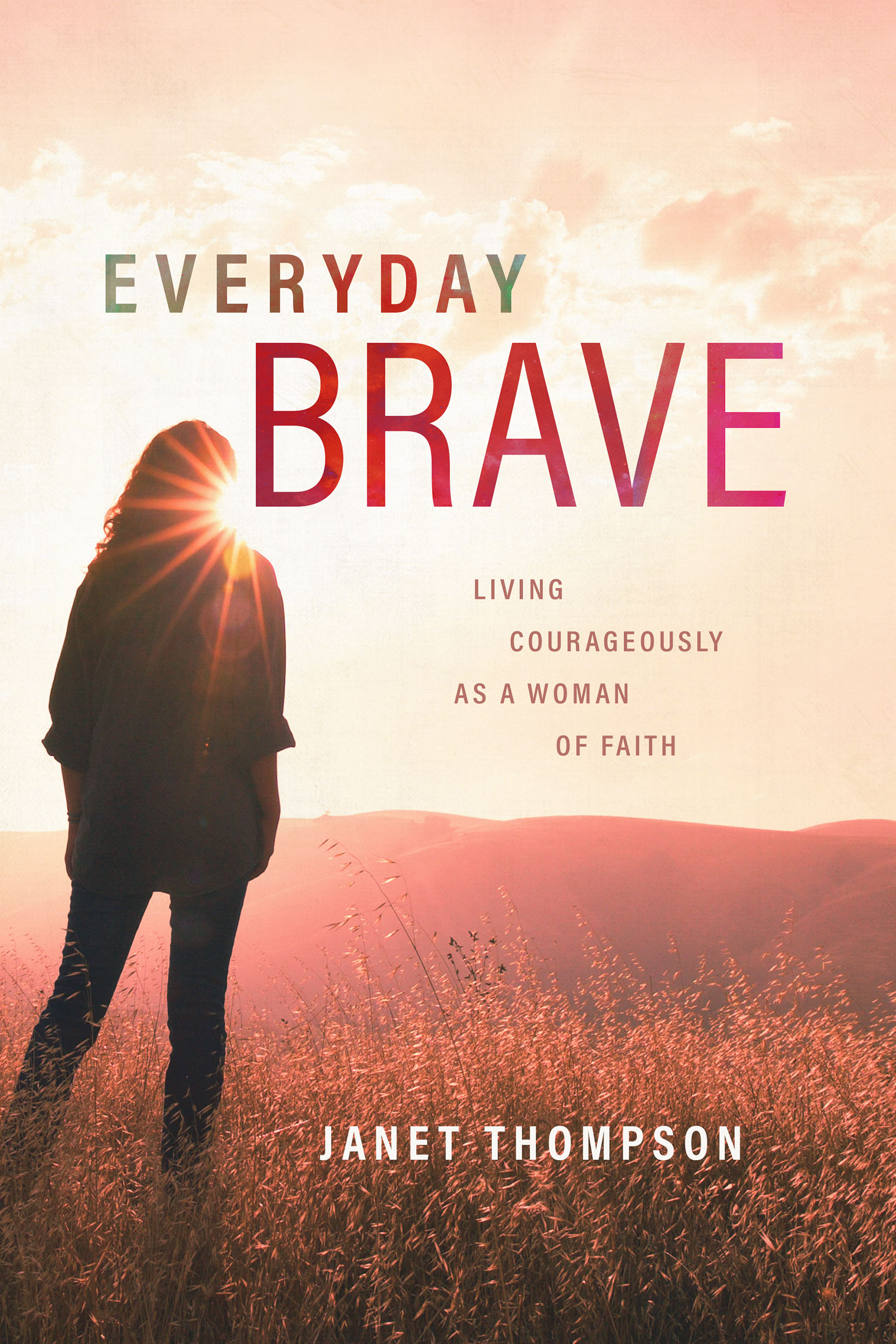 Seasons: Sharing Life Experiences and God’s Faithfulness; Forsaken God? Remembering the Goodness of God Our Culture Has Forgotten; Dear God, Why Can’t I Have a Baby?; Dear God They Say It’s Cancer; Dear God, He’s Home!; Praying for Your Prodigal Daughter; Face-to-Face Bible study Series; and Woman to Woman Mentoring Ministry Resources. Sign up for her weekly blog and online newsletter at womantowomanmentoring.com.
Seasons: Sharing Life Experiences and God’s Faithfulness; Forsaken God? Remembering the Goodness of God Our Culture Has Forgotten; Dear God, Why Can’t I Have a Baby?; Dear God They Say It’s Cancer; Dear God, He’s Home!; Praying for Your Prodigal Daughter; Face-to-Face Bible study Series; and Woman to Woman Mentoring Ministry Resources. Sign up for her weekly blog and online newsletter at womantowomanmentoring.com.
*Article includes excerpts from Everyday Brave.
Graphic adapted, courtesy of CongerDesign at Pixabay.
 Post a Comment → Posted on
Post a Comment → Posted on  Friday, March 6, 2020 at 8:31AM
Friday, March 6, 2020 at 8:31AM  Cross,
Cross,  Crucifixion,
Crucifixion,  Easter,
Easter,  Forgiven,
Forgiven,  Forgiveness,
Forgiveness,  God Chose You,
God Chose You,  Janet Thompson,
Janet Thompson,  Joy in Christ,
Joy in Christ,  Mary Magdalene,
Mary Magdalene,  New Christian,
New Christian,  Upgrade with Dawn Upgrade Your Life
Upgrade with Dawn Upgrade Your Life  Easter,
Easter,  UPLIFT Stories
UPLIFT Stories 




